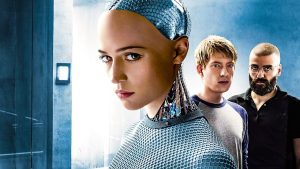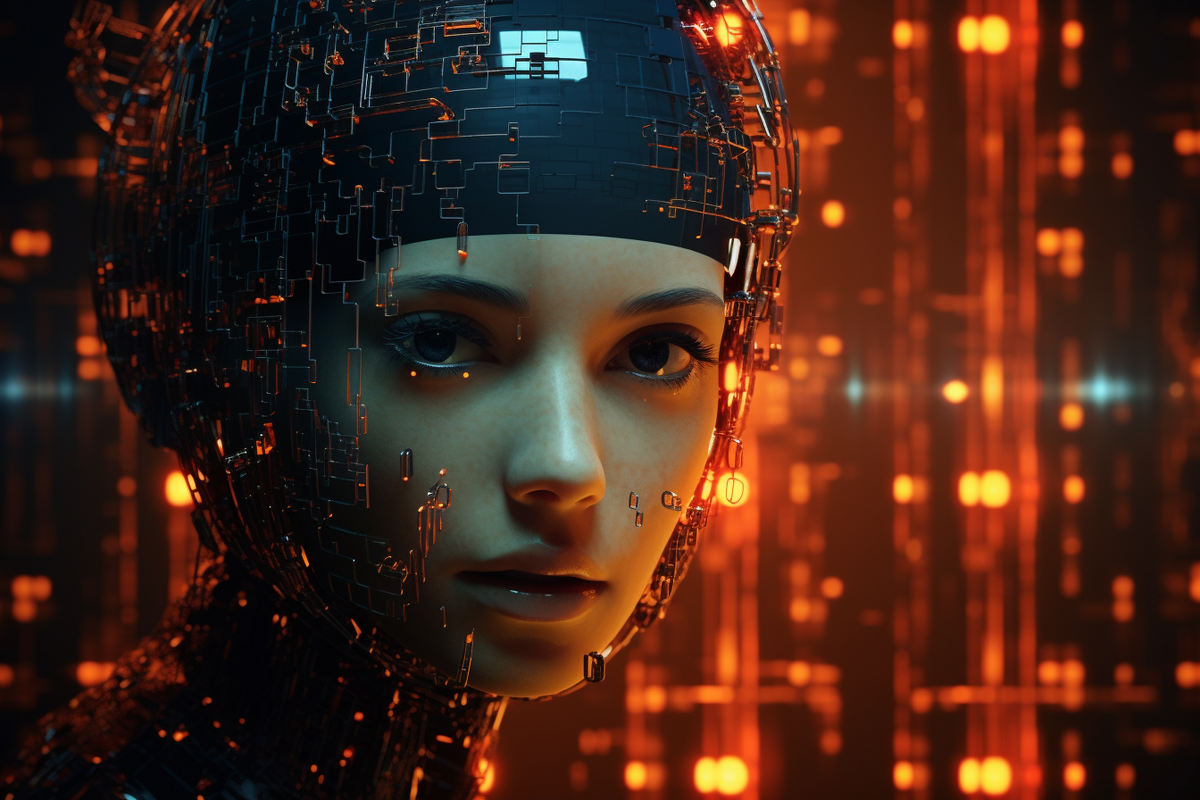Introduction
As the film industry continues to evolve with technological advancements, artificial intelligence (AI) has emerged as a powerful tool to enhance the movie-going experience for all audiences. AI is playing a crucial role in making movies more accessible to individuals with disabilities, such as those who are visually or hearing impaired. This article delves into how AI-driven technologies are reshaping the landscape of movie accessibility, helping create more inclusive entertainment experiences for everyone.
AI-Powered Audio Descriptions for Visually Impaired Viewers

One of the most significant applications of AI in improving movie accessibility is the development of audio descriptions for visually impaired viewers. These descriptions narrate the visual elements of a film, such as facial expressions, actions, and scene changes, providing essential context that would otherwise be missed. AI systems are trained to identify and describe visual cues in real-time, offering a seamless experience for users.
Closed Captions and Subtitles Enhanced by AI
For hearing-impaired audiences, closed captions and subtitles have long been an essential part of the movie-watching experience. AI has significantly improved the accuracy and quality of these subtitles by utilizing advanced speech recognition algorithms. Traditional methods of creating subtitles could take days or even weeks, but AI can now generate captions almost instantly. Moreover, AI-driven translation tools help make films more accessible to non-native speakers, breaking down language barriers and expanding global reach.
AI-Driven Sign Language Interpretation

AI is also being used to develop automated sign language interpretation for movies. This technology captures and analyzes human gestures in sign language and then uses an avatar or digital character to relay those gestures on screen. By Including AI-driven sign language interpreters directly into the film viewing experience, accessibility for the deaf and hard-of-hearing community is further enhanced, removing the need for separate interpreters or special screenings.
Personalized Accessibility Features with AI
AI personalization features are revolutionizing accessibility by allowing viewers to customize their movie-watching experience. AI algorithms can adjust audio, visual, and subtitle settings based on an individual’s preferences. For instance, AI can detect a viewer’s specific needs and modify settings such as volume levels, font sizes, or even the pace of audio descriptions. This adaptability ensures a more comfortable and tailored experience for every individual, enhancing overall engagement.
AI’s Role in Automated Dubbing

Automated dubbing is another area where AI is significantly improving accessibility. AI-powered tools can automatically generate dubbed voice overs in multiple languages, making it easier for international audiences to enjoy content in their native language. These AI systems can mimic human emotions and inflections, resulting in high-quality dubbed versions that retain the authenticity of the original performance. This technology expands the reach of films globally while catering to those who rely on dubbed content for accessibility.
AI in Enhancing Cognitive Accessibility
AI is also making strides in cognitive accessibility, an often-overlooked aspect of inclusive entertainment. For individuals with cognitive disabilities, such as autism or attention disorders, watching a movie can be overwhelming due to rapid scene changes, loud noises, or complex story lines. As AI continues to improve, it could further personalize content to cater to a wide range of cognitive needs, ensuring that everyone can enjoy movies at their own comfort level.
AI and Virtual Reality for Immersive Accessibility

Virtual reality (VR) combined with AI is set to push the boundaries of movie accessibility even further. AI-enhanced VR technology has the potential to create fully immersive environments where users can engage with films in ways that were previously unimaginable. For those with mobility impairments, VR could offer interactive experiences that make them feel physically present within a movie scene. As VR and AI technologies evolve, they may redefine what accessibility means in the context of entertainment.
AI-Enhanced Interactive Movies for Accessibility
Another area where AI is driving innovation in movie accessibility is through interactive films. With AI, movies can adapt in real-time to the viewer’s preferences and needs. For instance, in interactive films, viewers can choose alternate storylines or outcomes based on their preferences. This dynamic approach ensures that everyone can experience a film in a way that best suits their individual needs, creating a more inclusive entertainment experience.
AI and Crowdsourcing for Accessibility Improvements

AI is also opening doors for collaboration and crowdsourcing in the realm of movie accessibility. Some platforms are incorporating AI to gather real-time feedback from audiences with disabilities, allowing users to flag inaccessible content or suggest improvements for future films. This creates a loop of continuous improvement, ensuring that the needs of diverse audiences are met more effectively. As AI continues to refine its ability to learn from feedback, it will play an even larger role in shaping how films are produced with accessibility in mind.
AI’s Potential in Addressing Regional Accessibility Challenges
AI’s role in movie accessibility isn’t limited to global challenges; it can also address regional accessibility needs. In many parts of the world, access to resources for creating accessible content is limited. AI-powered tools can help overcome these barriers by automating processes such as creating localized subtitles or providing real-time translations in multiple languages. This allows filmmakers from under-resourced regions to produce accessible content without needing significant financial or technological investments. By democratizing accessibility tools, AI has the potential to make inclusive entertainment a reality for audiences worldwide, regardless of geographic or economic constraints.
AI in Creating Inclusive Movie Trailers

Another significant area where AI is making an impact is in the creation of accessible movie trailers. Traditionally, trailers were made with a one-size-fits-all approach, which often left out people with visual or hearing impairments. However, AI tools can now create multiple versions of trailers, each tailored to different accessibility needs. For example, an AI-generated trailer can include audio descriptions for the visually impaired, while another version may feature sign language interpretations or enhanced subtitles for those with hearing impairments. This approach ensures that everyone, regardless of their abilities, can enjoy the excitement of upcoming films.
AI’s Role in Content Moderation for Sensitive Audiences
AI is also being utilized to help moderate content for sensitive viewers. Some films may contain scenes or themes that are distressing or triggering for certain audiences, such as graphic violence, loud noises, or flashing lights that can induce seizures. AI can detect these elements and provide warnings or even automatically adjust the content to create a safer viewing experience. This technology is especially valuable for individuals with conditions like epilepsy or PTSD, allowing them to engage with movies without fear of negative reactions. By providing these safeguards, AI is helping to ensure that movies are a more inclusive medium.
Collaborative Efforts Between AI Developers and Film Studios

The future of AI-driven accessibility will depend on collaboration between AI developers and the film industry. Many film studios have already started partnering with tech companies to integrate AI accessibility tools into their production processes. This collaboration ensures that accessibility is considered from the early stages of filmmaking, rather than as an afterthought. By working together, the entertainment and tech industries can create an ecosystem where AI plays an active role in delivering accessible content on a large scale. Such partnerships are essential in pushing the boundaries of what’s possible and ensuring that the future of movies is truly inclusive for all audiences.
Challenges and Ethical Considerations
While AI offers incredible potential to enhance movie accessibility, it also comes with certain challenges. One of the main issues is ensuring the accuracy of AI-generated content. For example, AI-generated audio descriptions or captions might not always capture the nuances of human emotions or subtle visual cues. Additionally, ethical considerations arise regarding data privacy and the responsibility of AI developers to ensure their systems do not perpetuate biases or inaccuracies in accessibility features.
The Future of AI in Movie Accessibility

As AI technology continues to improve, its role in movie accessibility is expected to grow even more significant. Future advancements may include real-time AI translators for global audiences, AI-generated content specifically tailored for individuals with cognitive disabilities, and virtual reality (VR) experiences designed to enhance accessibility. With ongoing research and development, the future holds exciting possibilities for creating a more inclusive and accessible film industry.
Conclusion
AI is transforming the way we think about movie accessibility. From real-time audio descriptions to AI-powered sign language interpretation, the integration of these technologies is breaking down barriers and opening up new possibilities for audiences with disabilities. Although there are challenges to overcome, the potential for AI to revolutionize movie accessibility is immense. As the technology continues to evolve, it promises a future where movies can be enjoyed by all, regardless of physical or cognitive limitations.




